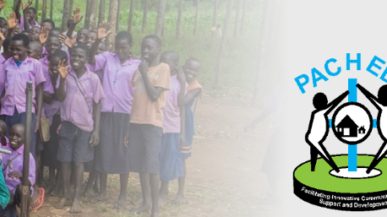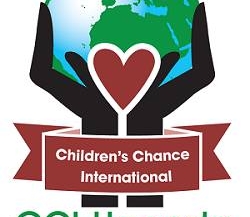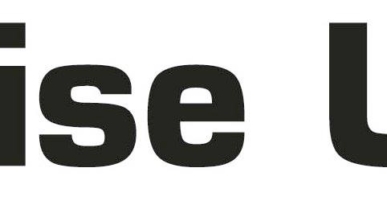Call for proposal
Empowerment Accelerated!
V-21195-UG
-
Grant amount
25, 000 - 50,000Project Duration
22 MonthsClosing date
31 Jan 2022 -
-
-
Grants
Are you a previous Voice Empowerment grantee?
Do you still see room for growth or continuation of your empowerment journey beyond your recently completed project?
Do you want to further work on your leadership and/or increase your, and community’s confidence to work towards full social inclusion of people affected by stigma, marginalisation, and/or discrimination?
If you answered “yes” to any of the questions above, then consider applying to this call!
It is an opportunity to expand, deepen, challenge or bring you another step further in your own empowerment processes.
Voice believes that when people are empowered, their self-esteem is higher. When people are happier they will be more eager to come together, to understand (each other) and to want to share their own lived experiences and lives. We want to support communities to find their own innate strength, raise their voices, and take actions to push for social change and inclusion.
The Voice Empowerment Accelerator grants are ‘graduation’ grants meant for rightsholder-led groups to continue and/or strengthen transformative leadership skills, to build (collective and individual) confidence and skills, forge alliances with other like-minded individuals and/or organisations to address cross-cutting obstacles, and work collectively against the exclusion of marginalised and discriminated groups.
Funding available is a minimum of €25, 000 – €50,000 and the lifetime of the projects under this grant should be for at least 22 months.
What do we wish to fund?
Proposals with “out of the box” project ideas that promote learning and focus on underrepresented groups within the following Voice rightsholder groups;
- People with disabilities
- Lesbian, gay, bisexual, transgender and intersex (LGBTI) people
- Indigenous People and ethnic minorities
- Vulnerable elderly and youth
- Women facing exploitation, abuse and/or violence
Voice has a strong preference for projects that are designed from an intersectional point of view. This means projects should aim to work with more than one of the above groups to address overlapping vulnerabilities and/or forms of discrimination.
All projects MUST focus on at least one or all of the following impact themes:
- Improved access to (productive) resources such as land, and employment,
- Improved access to social services, particularly health and education, and
- Fostering space for political participation and citizen engagement
Project activities may include, and not limited to the following;-
- Build self-confidence of all women (young, old, disabled, indigenous, LBQ women) to change social relationships and the institutions, and to enhance their ability to voice at national and/or county governments accountable;
- Build, and/or strengthen networks of marginalised groups to improve their skills, knowledge and self-perception;
- Raise (self)awareness among the marginalised groups about their own rights and sharpen-up strategies for demanding them, for example, engaging in advocacy with stakeholders and power brokers who exercise varying degrees of control over the group;
- Interventions that boost individual and/or groups economic status, such as promote women’s household bargaining power, youth access to employment opportunities, etc.;
- Strengthening the collective political voice of all women movements to improve access to productive resources such as finance, water and land;
- Civic education and public awareness campaigns to change attitudes influenced by outdated or discriminatory cultural practices within development programmes and service delivery;
- Interventions that enable persons with disabilities to live independently and participating in all aspect of life and eliminating obstacles and barriers to accessibility.
For more inspiration or ideas, we invite you to take a look at the different Empowerment projects supported by Voice via our Grantee page.
Who do we wish to fund?
We encourage rightsholders group / community based groups to apply. Therefore, Voice in Uganda will only accept applications from previous Voice empowerment grantees who are 100% rightsholder-led.
Voice encourages graduation, but can only have one contract at a time with a (lead) organisation.
Small (informal) organizations that are not yet registered should identify a fiscal host from the same area (geographical) of implementation. We are open to covering costs relating to registration in effort to further strengthen the group/organization.
Geographical location
The proposed project needs to be located in at least one of the following districts: – Gulu, Amuru, Nwoya, Omoro, Lira, Oyam, Kole, Masindi, Hoima, Kyegegwa, Ntoroko, Kamwenge, Kyenjojo, Kabarole, Lyantonde, Mbarara, Sheema, Wakiso, Mubende, Mityana, Masaka, Mpigi, Kayunga, Mbale, Pallisa, Iganga, Bugiri, Kamuli, Jinja, Butaleja, Kaliro, Mayuge.
From the numerous applications received the following grantees have been successful as part of this Call for Proposals. If you like to join Voice please see the current list of open Calls for Proposals Uganda
Uganda![Women’s Resilience for Gender Equality and rights Promotion (WOREP)]()
Women’s Resilience for Gender Equality and rights Promotion (WOREP)
Partners for Community Health and Development Organisation (PACHEDO)-
About
Are you a previous Voice Empowerment grantee?
Do you still see room for growth or continuation of your empowerment journey beyond your recently completed project?
Do you want to further work on your leadership and/or increase your, and community’s confidence to work towards full social inclusion of people affected by stigma, marginalisation, and/or discrimination?
If you answered “yes” to any of the questions above, then consider applying to this call!
It is an opportunity to expand, deepen, challenge or bring you another step further in your own empowerment processes.
Voice believes that when people are empowered, their self-esteem is higher. When people are happier they will be more eager to come together, to understand (each other) and to want to share their own lived experiences and lives. We want to support communities to find their own innate strength, raise their voices, and take actions to push for social change and inclusion.
The Voice Empowerment Accelerator grants are ‘graduation’ grants meant for rightsholder-led groups to continue and/or strengthen transformative leadership skills, to build (collective and individual) confidence and skills, forge alliances with other like-minded individuals and/or organisations to address cross-cutting obstacles, and work collectively against the exclusion of marginalised and discriminated groups.
Funding available is a minimum of €25, 000 – €50,000 and the lifetime of the projects under this grant should be for at least 22 months.
What do we wish to fund?
Proposals with “out of the box” project ideas that promote learning and focus on underrepresented groups within the following Voice rightsholder groups;
- People with disabilities
- Lesbian, gay, bisexual, transgender and intersex (LGBTI) people
- Indigenous People and ethnic minorities
- Vulnerable elderly and youth
- Women facing exploitation, abuse and/or violence
Voice has a strong preference for projects that are designed from an intersectional point of view. This means projects should aim to work with more than one of the above groups to address overlapping vulnerabilities and/or forms of discrimination.
All projects MUST focus on at least one or all of the following impact themes:
- Improved access to (productive) resources such as land, and employment,
- Improved access to social services, particularly health and education, and
- Fostering space for political participation and citizen engagement
Project activities may include, and not limited to the following;-
- Build self-confidence of all women (young, old, disabled, indigenous, LBQ women) to change social relationships and the institutions, and to enhance their ability to voice at national and/or county governments accountable;
- Build, and/or strengthen networks of marginalised groups to improve their skills, knowledge and self-perception;
- Raise (self)awareness among the marginalised groups about their own rights and sharpen-up strategies for demanding them, for example, engaging in advocacy with stakeholders and power brokers who exercise varying degrees of control over the group;
- Interventions that boost individual and/or groups economic status, such as promote women’s household bargaining power, youth access to employment opportunities, etc.;
- Strengthening the collective political voice of all women movements to improve access to productive resources such as finance, water and land;
- Civic education and public awareness campaigns to change attitudes influenced by outdated or discriminatory cultural practices within development programmes and service delivery;
- Interventions that enable persons with disabilities to live independently and participating in all aspect of life and eliminating obstacles and barriers to accessibility.
For more inspiration or ideas, we invite you to take a look at the different Empowerment projects supported by Voice via our Grantee page.
Who do we wish to fund?
We encourage rightsholders group / community based groups to apply. Therefore, Voice in Uganda will only accept applications from previous Voice empowerment grantees who are 100% rightsholder-led.
Voice encourages graduation, but can only have one contract at a time with a (lead) organisation.
Small (informal) organizations that are not yet registered should identify a fiscal host from the same area (geographical) of implementation. We are open to covering costs relating to registration in effort to further strengthen the group/organization.
Geographical location
The proposed project needs to be located in at least one of the following districts: – Gulu, Amuru, Nwoya, Omoro, Lira, Oyam, Kole, Masindi, Hoima, Kyegegwa, Ntoroko, Kamwenge, Kyenjojo, Kabarole, Lyantonde, Mbarara, Sheema, Wakiso, Mubende, Mityana, Masaka, Mpigi, Kayunga, Mbale, Pallisa, Iganga, Bugiri, Kamuli, Jinja, Butaleja, Kaliro, Mayuge.
-
How to apply?
This Call for Proposals is closed and no longer accepting applications. Come back here at a later stage to learn about the grantees that have been selected in this Call for Proposals.
The current open Calls for Proposals can be found here.
-
This Call for Proposals is closed and no longer accepting applications. Come back here at a later stage to learn about the grantees that have been selected in this Call for Proposals.
The current open Calls for Proposals can be found here.
-
From the numerous applications received the following grantees have been successful as part of this Call for Proposals. If you like to join Voice please see the current list of open Calls for Proposals

-
Uganda
![Women’s Resilience for Gender Equality and rights Promotion (WOREP)]()
Women’s Resilience for Gender Equality and rights Promotion (WOREP)
Partners for Community Health and Development Organisation (PACHEDO)
-




